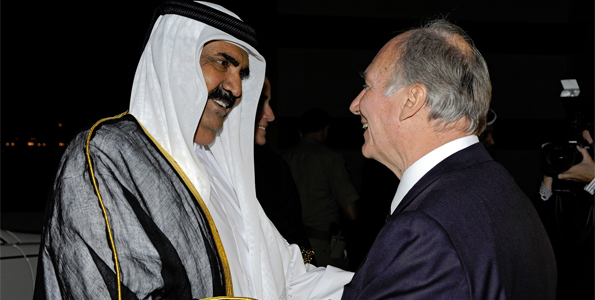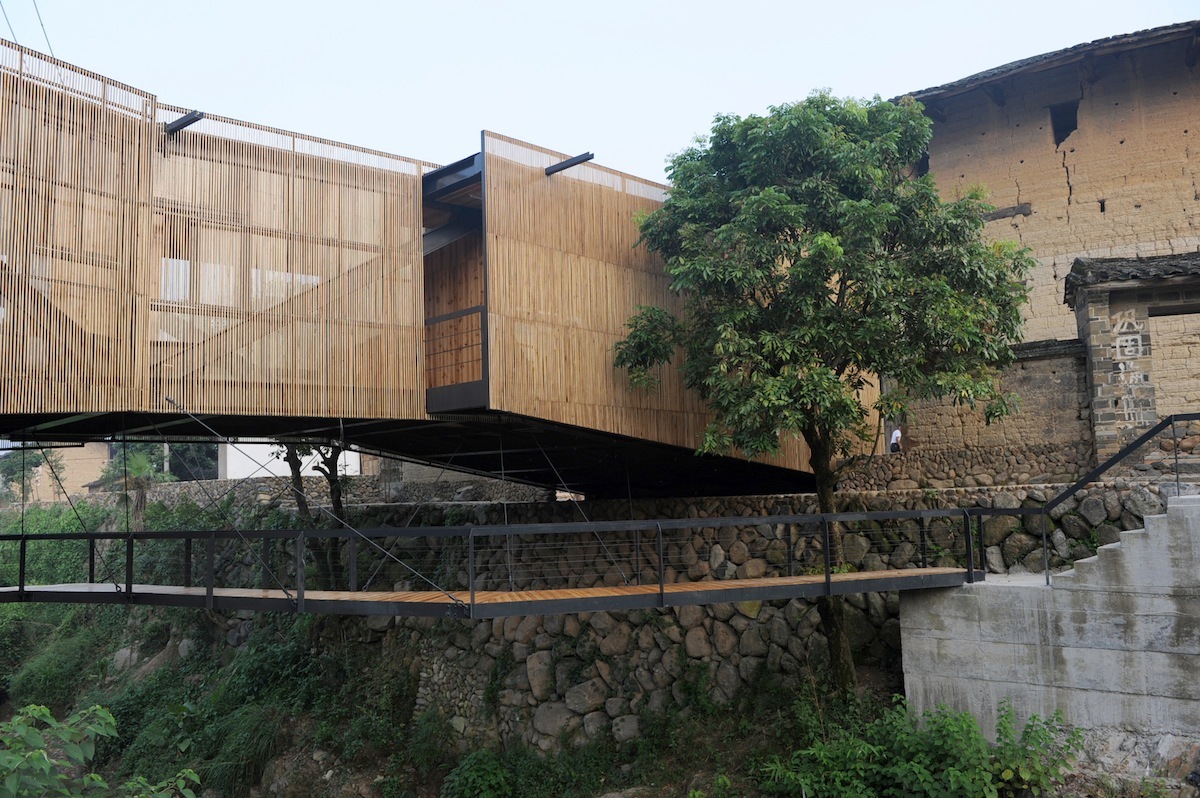DOHA -- In a room flowing with dignitaries, scholars, architects and other invited guests, the Aga Khan called for the need to close the gap of ignorance between the Muslim world and the West, asking in particular: Can these societies exchange knowledge but on an equal footing?

It was a challenge very much embodied in the Aga Khan Award for Architecture (AKAA) when established in 1977, and which was conferred for the 11th time this year in Qatar on November 24. This year's ceremonies were hosted by the Amir of Qatar, Hamad bin Khalifa al-Thani and Sheikha Mozah bint Nasser al-Missned (with other notables in attendance). Behind the pomp and protocol, however, was a very important but two-fold message. Certainly, there was the continued recognition of projects that contribute in multi-faceted ways to the societies in which Muslims live. Yet, the Award in a very stark manner recognized a project -- the Bridge School in Fujian Province in China -- that was wholly unrelated to the Muslim world, except for the fact that it was an initiative (the Award) inspired by the ethics of Islam that was conferring the recognition.
The Award has been given to 105 projects over its history and was established by the Aga Khan, a philanthropist and spiritual leader of the Shia Ismaili Muslims, with the objective to "enhance the understanding and appreciation of Islamic culture as expressed through architecture." One of the most prolific and methodical honors in the architecture world, the AKAA draws a truly diverse crowd and this year was no exception. The 2010 Master Jury itself included members from an eclectic array of backgrounds, geographically and professionally, including individuals from Syria, China, Senegal, Iran, France, the UK and Saudi Arabia. It was no wonder then that the five selected recipients of the $500,000 Award included a pluralistic collection of projects: the Bridge School in China; a revitalized hypercenter in Tunis; the Wadi Hanifa Wetlands in Riyadh, Saudi Arabia; the Ipekyol Textile Factory in Turkey; and the Madinat al-Zahra Museum in Spain.
The recipients truly symbolized the pluralism extant in its multi-faceted dimensions within the Muslim world, which is by no means a monolith, but rather a dynamic confluence of identities. The factory in Turkey was an industrial project that cost $17 million to build and used the essence of natural light to improve an otherwise downcast setting. The Bridge School in China, is at once a school, bridge, and new public meeting-ground in a marginalized village in Fujian province and was constructed at the cost of only $100,000. Meanwhile, the wetlands just outside Riyadh was a $160 million endeavor that reclaimed a neglected but important oasis in Saudi Arabia.
True, the Aga Khan Award for Architecture has recognized people and projects that improve the built environment in Muslim societies and empower Islamic identity and culture. Yet, there is also something post-cultural and post-Islamic that the Award represents. First of all many of the concepts that it has championed, such as local sustainability and environmental stewardship, it has done so ahead of its time starting over 30 years ago. Second, and more importantly, there is a universality in the 'excellence' of the projects. In his speech during the Award ceremony, the Aga Khan asked, "How can we share our lessons with others outside the Ummah?" In this year's cycle, the recognition of the Bridge School in China is particularly instructive. There is no Muslim heritage at the site nor is it in a Muslim area. Yet the principles of sustainable and responsible architecture are no different. When approaching development of the built environment in rural areas, we see a universality of principles, of course applied contextually across geographies.
It is here then that we can see the embryonic phase of an exchange of knowledge on equal footing between the proverbial West and Muslim world. That exchange is truly about the universality of knowledge and ideas, which need not be bound by geography or religion. The Vatican plays host to the ubiquitous portrayal of the School of Athens by Raphael. Within this painting is the portrait of Ibn Rushd or Averroes, amidst the historic scholars of Plato and Aristotle. Yet who is this Arab Ibn Rushd inhabiting the quintessential landscape of Western civilization? Averroes as he is known in the West, was not only responsible for the preservation and endowment to European thought of many of the ancient scholars of antiquity, but he also was the pioneer in conceptualizing the coexistence of secular philosophy and religious thought, his influence reverberating to this very day.
The reality today is often a one-way flow of ideas and knowledge, from West to East. It would be nostalgic to repeatedly recount the tremendous contributions of scholars such as Averroes and Avicenna. While they should indeed be recognized, the Muslim world needs to go beyond historical memory and look to what it also has to offer in the present and future to a global society. What are innovative ideas and approaches from within the Muslim world that should be considered universally?
What is remarkable about the Aga Khan Award is that it is now setting, in many ways, the new standard for architecture and the built environment globally. The list of 105 award recipients of the Aga Khan Award for Architecture is inspiring in this regard. But it is not enough. As one Saudi philanthropist attending the Award ceremony remarked to me: "We need more, and not just in architecture. We need the same in medicine and other fields to promote excellence and new ideas from the Muslim world." My response was concise and clear -- Inshallah. Taufiq Rahim is a Visiting Fellow at the Dubai School of Government and blogs regularly at TheGeopolitico.com
(Photo credits: AKDN)

